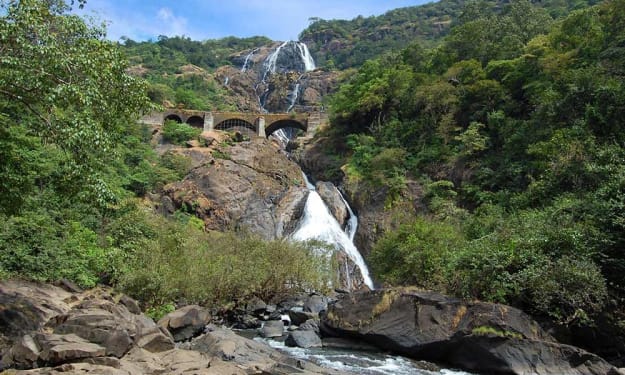
Values are the foundation to our policies and lead to how we decide to get things done in life. To be aware of one's impact on their surroundings, especially on a small scale, leads to a momentous shift in consciousness and to procedures changing over time. Current challenges facing today's society are closely related to the boom in human population including, increased rates in global warming, decreased biodiversity, nature fragmentation, shortages in drinking water, over-fishing, pollution, and increased overal carbon emissions.
To solve these issues, environmental education will help shift people's ideas about how to live on a daily basis. Aligning our values with sustainable objectives will allow our race to support conservation efforts, protect endangered wildlife, and join other species in living according to the universal law - understanding that all nature is connected. By living life filled with values that support harmony with nature we insure that continual examination of our actions are aligned with the natural flow of ecosystems already present. We then will be able to repair the harm we have caused to the environment and pass on our planet's uniqueness and bounty to future generations.
At this point, everyone has a responsibility to reduce their carbon footprint. The key to achieving this is to reduce what is possible and then offset what is more difficult. There are many ways to reducing individual contributions to carbon emissions and each just involves us to think about our lifestyle decisions and find small opportunities to actively choose to change in the moment.
An easy fix that helps the environment stay healthy daily is to switch all the lightbulbs inside the house and automobiles to compact fluorescent bulbs, which helps reduce up to 1,300lbs of carbon emissions during each bulb's lifetime. In conjunction with using more efficient lightbulbs, be sure to turn off lights promptly when exiting each room. Changing our tech behaviors and forming new habits by completely powering off gadgets, charging them after 9pm when it is not peak power usage time, and unplugging the chargers is not only good for our devices, but helps reduce electricity costs by saving individual households up to $100 on electrical bills annually.
By keeping curtains closed during the day and windows open at night we can regulate the temperature of our homes instead of relying on electricity guzzling air conditioners. Making home upgrades such as installing better insulation, sealing air leaks with caulk, adding weather stripping, and installing energy-efficient appliances we can reduce our impact significantly. Adding green energy technology such as solar systems will reduce our dependence on fossil fuels, add to neighborhood surplus of energy, and increase local air quality. We can even go further by drying our clothing in the sunlight so that we lower dryer usage.
The average person in this country spends up to 18 days in the car annually, which makes the benefits of carpooling to reduce emissions clear. Using public transportation or investing in a bicycle is better for the planet and motivates us to spend more time outside, which both reduces the amount of gas and home electricity we use during the day. By purchasing low-carbon vehicles, owning smalling cars, and ensuring that our vehicles are properly maintained, we are being climate-responsible. Some people like owning large vehicles because they are versatile and can transport stuff, but there are many options now that help our smaller vehicles be handier such as hitch-mounted cargo racks or rooftop boxes. One of the biggest contributors to carbon dioxide reaching our atmosphere is airplane travel for work or leisure. If we switch to a local job, take fewer trips, take longer vacations, and increase use of video-conferencing then we will be helping to reduce emissions drastically.
In my personal life I have made many of the above changes to lower my carbon footprint, but my absolute favorite thing I have done is to pursue a degree in Environmental Science. Environmental Science is the study of the natural world and how it is impacted by the human species. Environmental impacts on this planet come from the number of people and the amount of resources that they use and where they harvest them from. Topics such as food, human population growth, energy sources, global climate change, and biodiversity are major focuses of this branch of science. Understanding these topics require us to incorporate aspects of other sciences such as biology, ecology, and chemistry. By recongnizing the relationships between organisms and studying how farming and development impact them, environmental scientists can find sustainable ways to harvest resources and preserve them at the same time.
Having my degree has led me to a career that allows me to teach today's youth about these very topics and the importance of sustainability. In doing so, I have made a much bigger impact than just focusing on myself alone, because now others have been exposed to information regarding carbon emissions, climate change, saving our oceans, sustainable agriculture, gardening for wildlife, and more. One of the greatest things we can do is spread information and make small everyday choices to lower our carbon footprint. We don't need a few people making these choices perfectly, we need millions of people making these choices imperfectly on a daily basis - THAT is what will make the difference. Small, everyday choices.
About the Creator
Jen Eden
Here to tell my tales - to share what's inside of me. I'm not quite sure the purpose - I guess to leave a tiny shred of the moment in time, that was me.
Instagram https://www.instagram.com/eden_treks/
Enjoyed the story? Support the Creator.
Subscribe for free to receive all their stories in your feed. You could also pledge your support or give them a one-off tip, letting them know you appreciate their work.






Comments
There are no comments for this story
Be the first to respond and start the conversation.